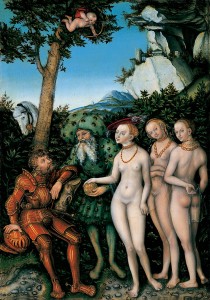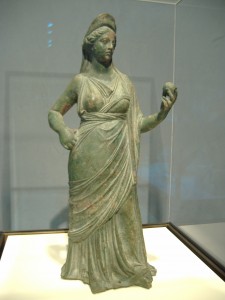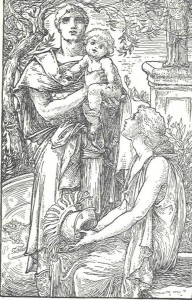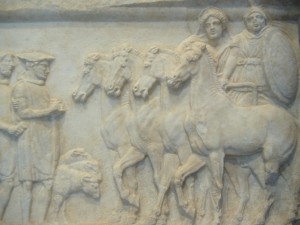Click here for direct link to audio Episode #2.
Click here for previous episodes.
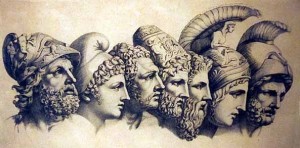
Like most writers, I am a fiend for books and paper, and find it difficult to keep up with it all.  So today, I organized my work space for maximum efficiency and came across a slip of paper with this note written in my handwriting: “Epipole of Carystos, daughter of Trachion…wanted to go to Troy with the Greeks—was stoned to death.” Just something I ran across in my research that I wanted to know more about. There are so many tales related to The Iliad, that study of the cycle of stories could easily take over one’s life. In the editorial process, some great tales I’d written up never made it into the book I did for Scholastic. Here is one of them, a very sad tale of the young newlyweds, Laodamia and Protestilaus.
Laodamia was the new wife of Protestilaus, a Greek warrior sent to fight at Troy. It was prophesied that the first soldier to step foot on Trojan soil would be the first to die. Protestilaus, seeing great honor in being the first to die for the cause, leaped from ship to shore and was slain immediately by Hector. Laodamia had only been married to him for one day. She so mourned her loss that the gods took pity on her and allowed her to see him for three hours before he proceeded to the Underworld. When she saw him, she fell into his arms, plunged a dagger through her heart, and accompanied him to Hades.
Enjoy today’s podcast. We finish up The Iliad next Monday and then begin on The Odyssey!



